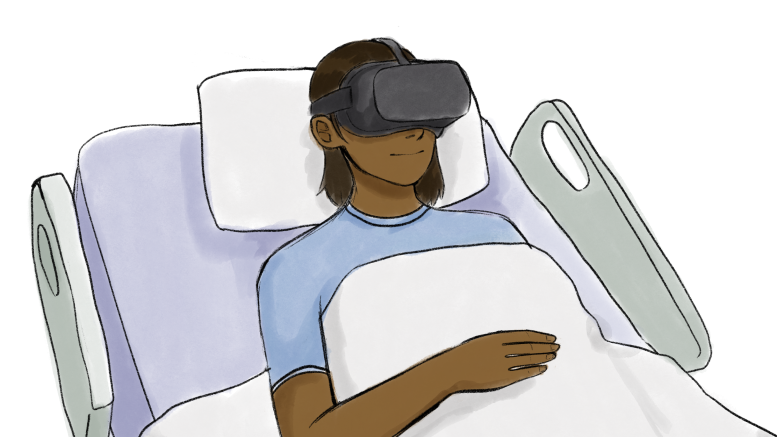Renée El-Gabalawy, an associate professor in the department of clinical health psychology at the U of M’s Max Rady college of medicine, studies how mental health affects medical care, especially pre-surgery. She is also director of research in the Health, Anxiety & Trauma Lab, an adjunct scientist at CancerCare Manitoba and a clinical psychologist with Shared Health.
“My research investigates how mental health influences the experience and outcomes of adverse health events and medical trauma (e.g., life-threatening illness, surgery, ICU admission),” she said, “including the development of conditions such as [post-traumatic stress disorder] and delirium.”
El-Gabalawy explained that anxiety before surgery can affect recovery in serious ways. “We knew from the literature and my own work […] that anxiety before surgery actually contributes to negative perioperative outcomes,” she said, adding that pre-surgery anxiety can lead to longer hospital stays, higher rates of re-admission, greater pain and fatigue and, in some cases, increased risk of death within a year.
Her research team is developing innovative solutions to address this gap. One of the most promising is the use of virtual reality (VR) to help patients manage anxiety. The idea stemmed from her interest in integrating evidence-based anxiety interventions into VR to support patients before surgery.
The project has grown into a full intervention, developed with input from patient partners and refined through focus groups. It is now being tested in a large, randomized clinical trial with support from CancerCare Manitoba. “We developed a program that aims to support patients’ mental health before surgery,” she highlighted. “We worked with patient partners, we ran focus groups, we’ve published a number of studies in this area, and we have the intervention in its final form,” she noted.
According to El-Gabalawy, early results have been promising. Patients in pilot studies valued the program, even when it was in its early prototype stage. “We found […] that 100 per cent of the participants […] thought the additional appointment was worthwhile of their time, in terms of receiving that virtual reality intervention,” she said. “Even though it didn’t include, at that point, those evidence-based aspects to it.”
El-Gabalawy’s team has also expanded into other areas. They are studying VR use during procedures performed under local anesthesia to reduce pain and stress, including in urological procedures such as vasectomies.
Post-operative applications are also underway. “We’ve developed a VR program specifically for people who undergo amputations and experience phantom limb pain after their surgeries,” she said. Phantom limb pain affects about 70 per cent of patients who receive amputations.
Her approach is shaped by a career that blends clinical psychology with medical research. Originally planning to pursue medicine, she shifted to psychology after receiving a Vanier Scholarship during her graduate studies. “I realized that I could do something I love and work within the faculty of medicine in the context of being a clinical psychologist,” she said.
El-Gabalawy emphasized the collaborative nature of her work. “Great research doesn’t happen alone, it takes a team. I’m fortunate to collaborate with brilliant colleagues and students whose diverse strengths spark innovation and make our work possible.”
For students interested in research, she emphasized the need for passion and mentorship. “I would say it’s really important to identify a good mentor who is enthusiastic, who can provide support and who you feel that you have a collaborative relationship with,” she said. “You have to be passionate and enthusiastic and believe in the work you’re doing.”


